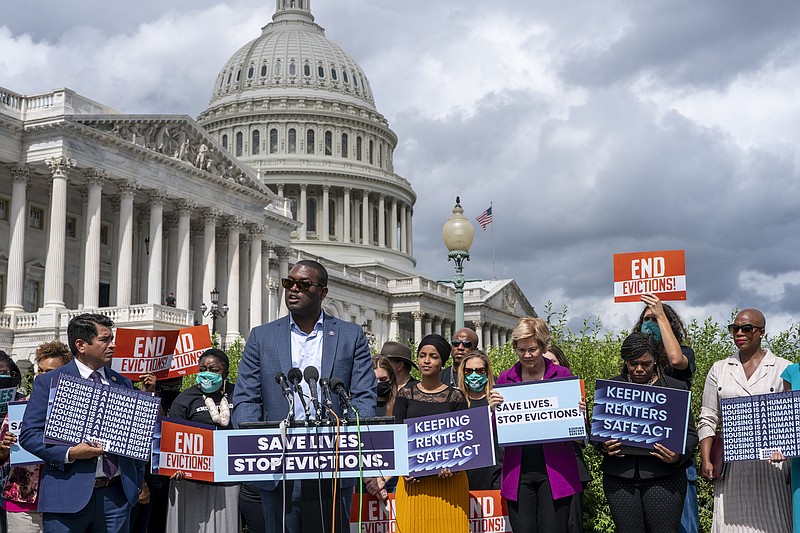Almost a month after a federal eviction moratorium ended, the Treasury Department said Friday that states and cities distributed money for nearly 1.4 million payments in August and the pace picked up from the month before.
More than 16.5% of the federal rental assistance reached tenants last month, compared with 11% in July. The latest data from the department, which oversees the program, also found that states and cities that were slow to get their programs off the ground are now sending tens of millions of dollars out the door.
Lawmakers approved $46.5 billion in spending on rental assistance but so far states and cities are mostly allocating the first installment of $25 billion, which must be spent by Sept. 30, 2022. Allocation of the second installment of $21.5 billion can go through Sept. 30, 2025.
Treasury officials acknowledged they were not satisfied with the total distribution. They insisted that what has gone out so far represented meaningful numbers and the money was having an impact in helping keep families in their homes.
The latest update comes as pressure is building to more quickly distribute the funds after the Supreme Court in late August allowed evictions to resume. The court's conservative majority blocked the Biden administration from enforcing a temporary freeze put in place because of the coronavirus pandemic.
[CORONAVIRUS: Click here for our complete coverage » arkansasonline.com/coronavirus]
Though evictions have not spiked in most communities, there is a concern that millions of tenants who qualify for help could be tossed out before the money arrives.
As of Sept. 13, nearly 3.3 million people said they were very or somewhat likely to face eviction in the next two months, according to the Census Bureau's Household Pulse Survey. In the survey that ran through Aug. 30, more than 3.6 million said they faced eviction.
Treasury officials said the strong signs of progress came from New Jersey, New York and South Carolina, which have struggled to get their programs going.
New Jersey, for example, sent out no money in the first quarter but now has distributed 78% of its first-installment money and doubled the number of households served in August compared with July.
Spending in Florida increased from $60.9 million in July to $141.4 million in August while South Carolina went from $10.6 million to $25.3 million. New York saw a jump from $8.5 million to $307 million.
Among cities and counties, New York, Los Angeles and Miami-Dade County in Florida collective reached nearly 27,000 households and spent more than $347 million in August, compared with $800,000 in May.
Some states lag behind.
Ohio, which started strong, saw its distribution decline slightly. Kentucky saw a slight drop in spending from $13.1 million in July to $11.9 million in August. Iowa only distributed $7 million in August.
"Nearly 1.5 million families helped is meaningful progress, but the overall rate of spending emergency rental assistance remains too slow," Diane Yentel, CEO of the National Low Income Housing Coalition, said in a statement.
Those places which aren't spending funds risk having that assistance redirected to other states or cities.
Treasury is planning to release details next week on how it will handle the process of reallocating funds -- shifting money from those places that don't have a demonstrated need to those that have exhausted 65% of their money and need more.
The allocation is expected to happen over months. The emergency rental-assistance statute allows for reallocating emergency rental assistance funds beginning Sept. 30.
In a letter to grantees Friday, U.S. Deputy Secretary of the Treasury Wally Adeyemo said the department would identify excess funds for reallocation "through a fair approach based on transparent benchmarks."


